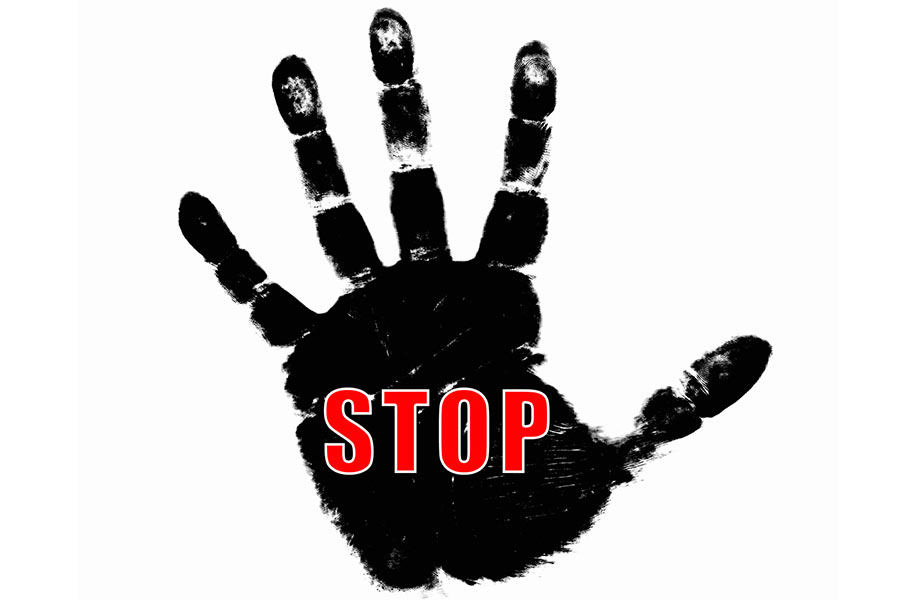“I just wanna try something, is that OK?” she asked, as she gripped my hips and started to turn me on my stomach. Quite drunk, I mumbled “OK” just before her fingers penetrated my space and left a painful throb that I awoke to the next morning.
Today, I do not consider myself a victim of sexual assault, but that has mostly to do with my positive feelings surrounding the other, non-sexual experiences I have had with this individual. Months before our one-night stand, we shared laughs over pancake breakfasts in our campus’ LGBTQ house. Every so often, we would go on walks together to listen to each other’s love lives. We were intertwined in our college’s queer scene and found trust and unity there — so why did I feel completely uncomfortable after we had sex? Am I excusing her actions solely because her fingers were not a penis, although both are capable of the same motion? Can people who avidly support one another in a sexual-minority community still betray each other’s trust?
Unfortunately, sexual assault occurs in all communities, regardless of sexual orientation. The National Center for Lesbian Rights has recently found that “one in eight lesbian women and nearly half of bisexual women experience rape in their lifetime.” However, like much of the research on this matter, it is difficult to gather statistics on who specifically is sexually harming lesbian and bisexual women when we still struggle to define same-sex intimacy in the first place.
The majority of our public schools do not educate students about same-sex sexual practices — which isn’t surprising, considering many continue to avoid teaching adolescents about conventional heterosexual sex, even. However, when teenagers who may be questioning their queer identities are not educated on the ins and outs of what is considered “standard” in same-sex intimate interactions, how can they go to college, confident that their sex lives will be safe there?
Our education system isn’t the only root of the problem here. Society already perpetuates a deep-seeded myth that women are not capable of hurting other women and, when combined with the popular stereotype that queer women are inherently more sexually “deviant” — thanks to the porn industry and other media that portray them as such — lesbians are essentially destined to have their sexual-misconduct truths silenced before they are even voiced, let alone conceived as “misconduct” in the first place.
Addressing one’s assault, and how to go about healing from it, varies from victim to victim too. As the University of Michigan’s Sexual Assault Prevention and Awareness Center outlines, LGBTQ survivors “may feel punished for acting outside of society’s prescribed gender roles,” therefore feeling shame and understanding their assault as a deserved consequence of their unconventional sexual preferences.
Pile these factors onto a situation for many of us young, academic queer women —residing in a small community space, such as a college campus. I go to a college in rural Ohio with a student population of about 1,600. Colleges in Philadelphia and its surrounding area that also have tiny student bodies include Haverford College, Chestnut Hill College and Swarthmore College, to name a few. When those in a small population of young and sexually active people are inevitably sharing the same classrooms and dining halls, they are bound to be even more uncomfortable with the idea of reporting their sexual assaulters, as recent national cases have shown. One such case is at small, progressive Grinnell College, where the Huffington Post reported that “in some cases, [the college] forced students to attend class with men the school acknowledged to have sexually assaulted them.” The victims at Grinnell were identified as cis females. If a widely respected, highly acclaimed college such as Grinnell has failed its heterosexual student survivors in such a way, what hope is there for queer youth on small campuses?
It should be acknowledged that the efforts that are happening — such as those of the NCLR — even to simply raise awareness about sexual assault existing among all sexual orientation groups, are profoundly helpful. Collegial discussion of LGBTQ sexual assault is on the rise, as general acceptance of queer practices is growing with the times, as well. But we, the queer youth, cannot continue to wait for society to first consider us as equals before we receive the equal justice for the sexual wrongdoings done to us — before we can feel safe enough to address and talk about our experiences with same-sex misconduct in the first place.
I do not feel scarred from my unwanted sexual experience. But my remaining mixed feelings about it certainly do not provide any clearer insight into the amount of respect I was given, or the amount of trust that I felt was lost between my friend and me that night. What gives me solace are opportunities like this to share the confusion that I and others hold after these experiences and, ultimately to bring knowledge to those in our community who may have otherwise felt alone and unheard. Keep your chin up — your experiences are real and your emotions are valid, just like your unique and most colorful sexual identity.
K.S. is a queer feminist who lives in the Philadelphia area and enjoys writing and listening to Fleetwood Mac.
